A Plan to Avert a Vast Oil Spill Off Yemen Finally Moves Ahead – the New York Times
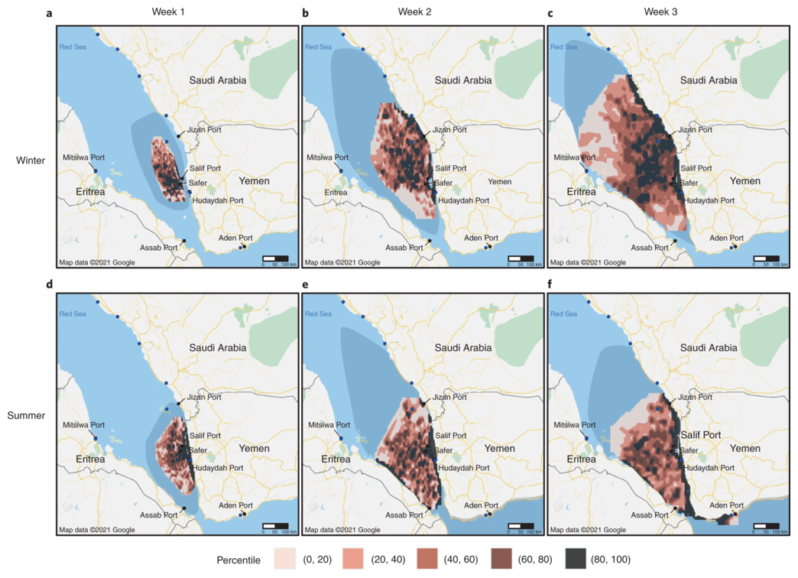
A decaying tanker holds about four times the amount of oil leaked in the 1989 Exxon Valdez disaster. Experts have warned that it is an ecological time bomb that could explode or disintegrate at any moment…The tanker is moored north of the port city and was once the site of fierce battles in the country’s eight-year-old war, which created one of the world’s worst humanitarian crises…
Fossil-Fuel Interests Try to Weaken Global Plastics Treaty – Scientific American
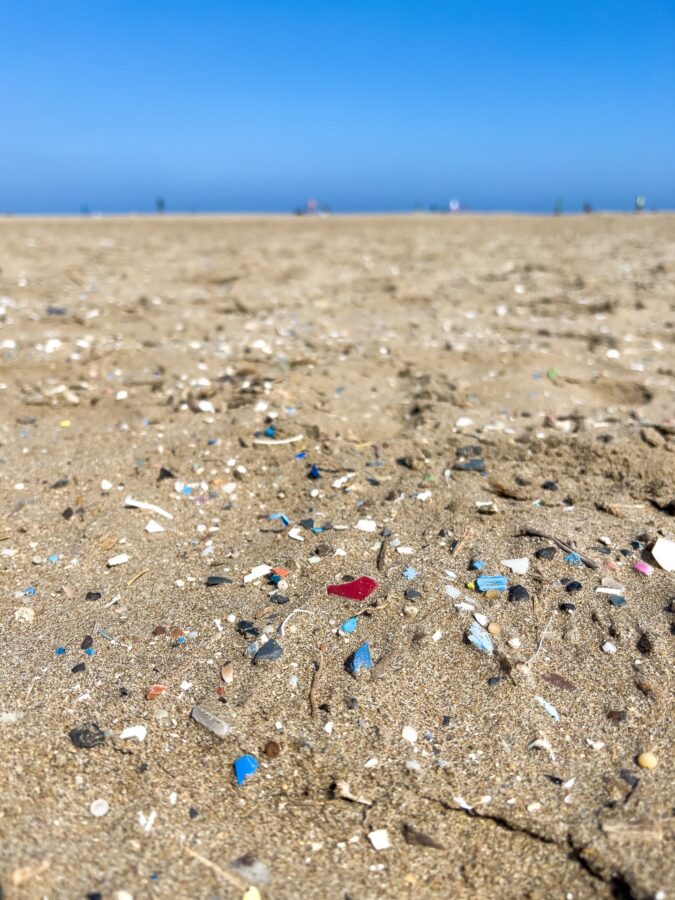
An international effort to rein in plastic pollution is running into resistance from China, Saudi Arabia and other nations that see a future in plastics amid declining demand for oil, gas and coal. That debate is playing out over the terms of a prospective global treaty that could set limits on plastic production and consumption. Environmentalists last year scored a landmark victory when 175 countries agreed to write a treaty designed to address the problems with plastic…
S A N D : Essential . . . Unregulated . . . and Dwindling
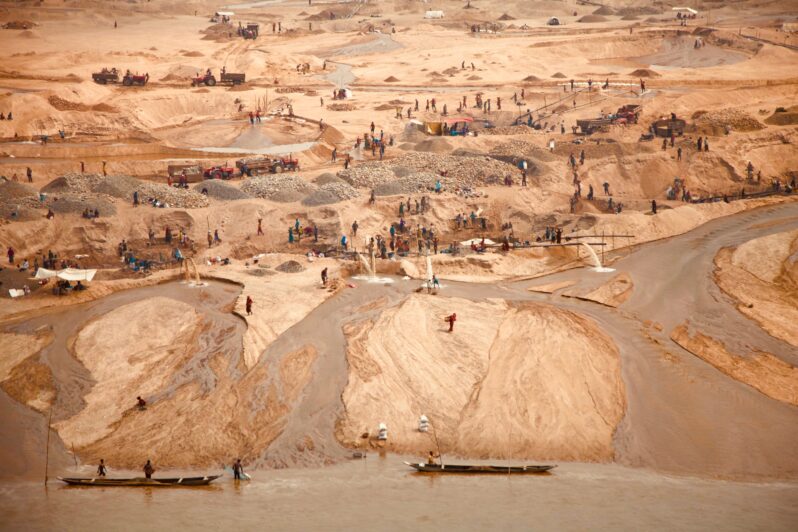
“Sand is the foundation of human construction and a fundamental ingredient in concrete, asphalt, glass and other building materials. But sand, like other natural resources, is limited and its ungoverned extraction is driving erosion, flooding, the salination of aquifers and the collapse of coastal defences…”
Global sand trade figures don’t add up – Beneath the Sands ERC
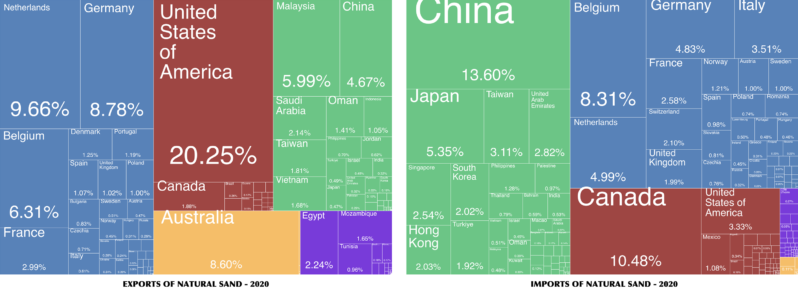
On March 17, more than 120 tons of sand packed into drums was loaded onto the Basle Express, a container freight ship more than three soccer fields long. The ship was docked in one of America’s major ports, Savannah, Georgia, in the Southeast region of the country.
The shipment itself was not remarkable — except for how it is emblematic of the international sand trade, highlighting the type of sand that attracts foreign buyers, the countries that are buying and those that are selling…
We can’t run away – Beneath the Sands ERC
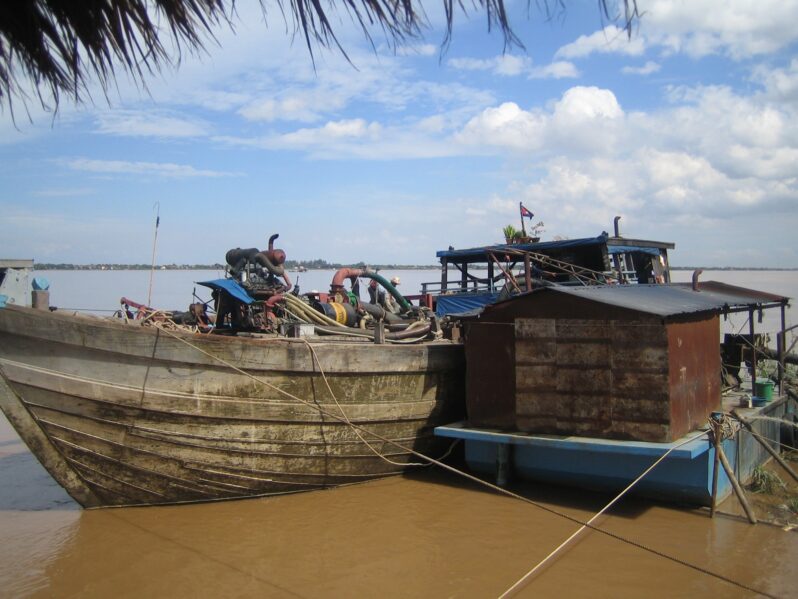
The rise in sand demand endangers the lives of children, laborers, journalists and environmental defenders.
Greed over grains of sand has a fatal human cost: As cities rise and countries urbanize, sand-related murders and other associated crimes have taken a toll on poverty-stricken communities.
In parts of the globe, where sand is extracted, criminal gangs and sand mafias control the multi-billion dollar trade, spawning violence in land-rich, developing nations. On their trail are hundreds of people — miners, journalists and environmental defenders — reported to have been killed, imprisoned or threatened…
Women against the grain – Beneath the Sands ERC
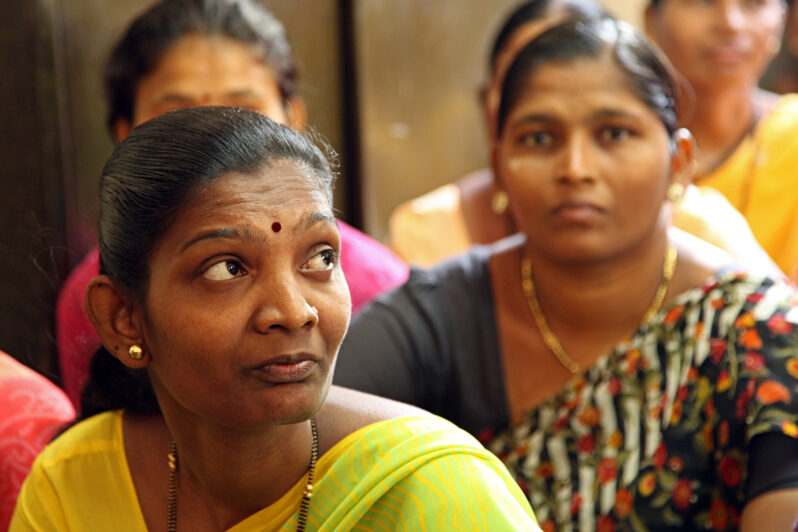
Women in Cambodia, India, Kenya and Indonesia share how they are on the frontlines in the resistance against powerful sand mining operations in their communities.
In a trade that is dominated and driven by men, women often bear the burden of the negative social and environmental impacts from sand mining activities across the world. This is evident in much of our reporting on the global industry. As is common with many environmental issues we face today, we feel that the disproportionate burden to women is a heavily underreported issue…
Beneath the Sands Series – the Environmental Reporting Collective
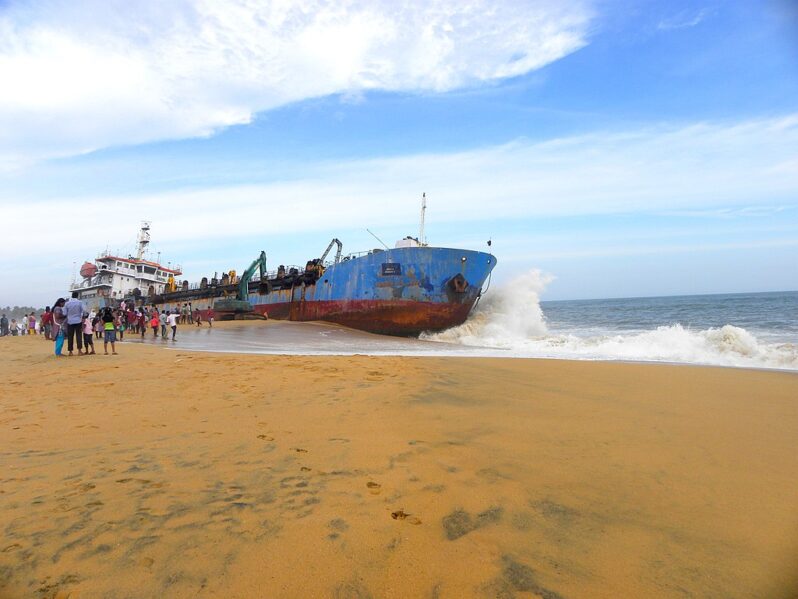
The greed for grains of sand comes at an ecological disaster and fatal human cost; murders and other associated crimes which have taken a toll on poverty-stricken communities, particularly women.
The ERC investigation, Beneath the Sands, exposes how greed for grains of sand comes at a fatal human cost: As cities rise in number and countries urbanize rapidly, sand mining-related murders and other associated crimes have taken a toll on poverty-stricken communities…
Nowhere to fish, nowhere to farm – Beneath the Sands ERC
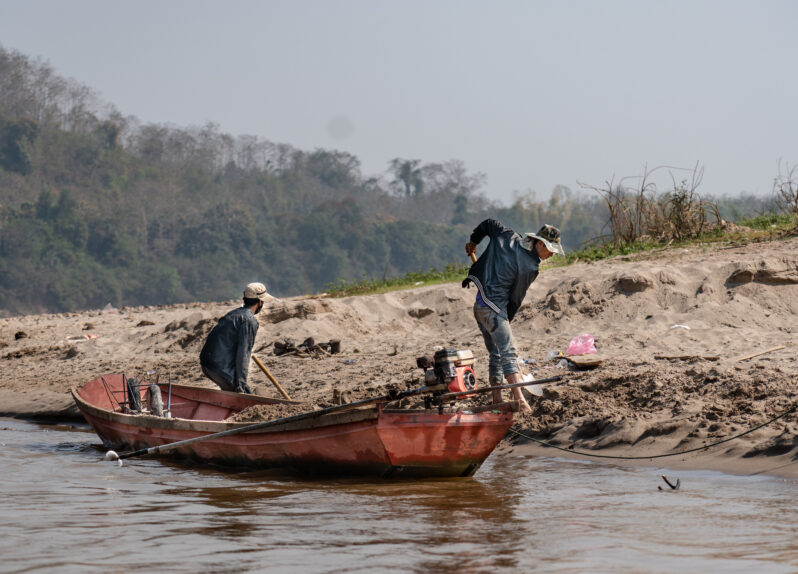
Across Asia and Africa, countries are dealing with massive sand mining that destroys fishing grounds, farmlands, and homes.
Beting Aceh, an island in Riau Province, Indonesia, has been Eryanto’s home for 40 years. The island is known for its white sandy beaches and clean ocean water; more than half its residents are fishers.
But the island has drastically changed over the past two years. The ocean water is getting murky, the beach is shrinking, and it has suffered from massive erosion, indicated by the uprooted trees strewn along the coast. Many villagers say the damage is linked to a sand mining operation happening between Beting Aceh and the neighboring Babi Island…
Reclamation: A flawed solution – Beneath the Sands ERC
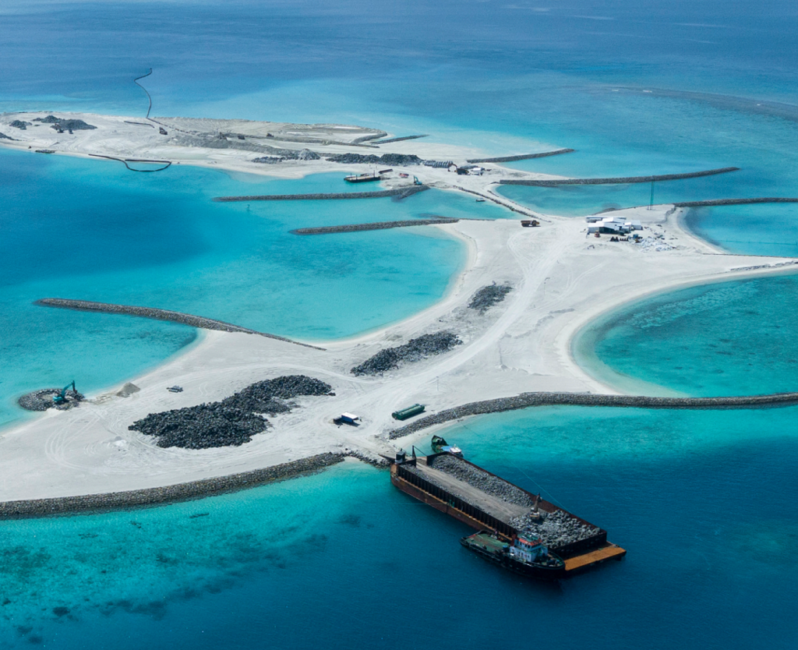
A deep dive into the rationale behind some of Asia’s reclamation projects, the toll they take on our environment and communities, and the search for more sustainable alternatives.
Reclamation is seen as a solution for countries to deal with increasing land demands, by expanding their territory and rehabilitating previously uninhabitable lands or seas. Yet, the process guzzles an alarming amount of sand, causing massive environmental damage as well as a rise of transnational criminal syndicates trading in illegal sand..
